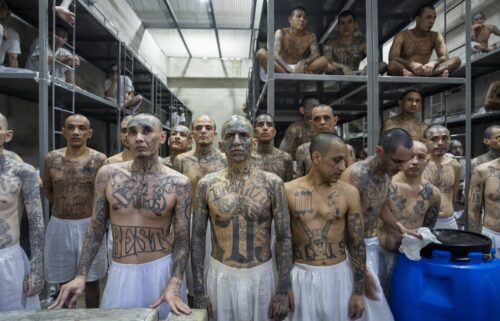Ted Cruz’s campaign finance rule challenge gets its day at the Supreme Court

By Fredreka Schouten and Ariane de Vogue, CNN
The Supreme Court will revisit the issue of campaign finance Wednesday, hearing a challenge brought by Republican Sen. Ted Cruz of Texas to a federal cap on candidates using political contributions to recoup personal loans they make to their campaigns.
A high court ruling in Cruz’s favor could further erode the 20-year-old law that governs how elections are funded. The Supreme Court already has chipped away at it, granting corporations and unions the right to spend unlimited amounts to influence candidate elections in its 2010 Citizens United decision.
In 2008, the justices also struck down the so-called millionaire’s amendment that aimed to level the playing field when wealthy candidates financed their own campaigns. That provision had relaxed contribution limits for opponents of self-funded candidates in an attempt to close the funding gap.
In the case at hand, campaign finance regulators at the Federal Election Commission argue that the cap is necessary to protect against corruption, but a three-judge appeallate court ruled in favor of Cruz last year, holding that the loan-repayment restriction violates his First Amendment right to free speech.
“A candidate’s loan to his campaign is an expenditure that may be used for expressive acts,” the court said, in an opinion written by DC Circuit Court of Appeals Judge Neomi Rao, who was appointed to preside over the trial court-level panel. She and DC District Court Judges Amit Mehta and Timothy Kelly ruled unanimously.
“Such expressive acts are burdened when a candidate is inhibited from making a personal loan, or incurring one, out of concern that she will be left holding the bag on any unpaid campaign debt,” the ruling added.
RELATED: Gorsuch declines to wear mask, as bench-mate Sotomayor works from her office
Federal law allows candidate to make loans to their campaign committees without limit. The Bipartisan Campaign Reform Act of 2002, however, imposes a $250,000 limit on a campaign committee’s ability to repay those loans with money contributed by donors after the election.
A day before he was reelected in 2018, Cruz loaned his campaign committee $260,000, $10,000 over the limit — laying the foundation for his legal challenge to the cap.
Charles Cooper, a lawyer for Cruz, told the Supreme Court in briefs that “no First Amendment right is more vital in our constitutional democracy than the freedom of a candidate to speak without legislative limit on behalf of his own candidacy.”
The law, “by substantially increasing the risk that any candidate loan will never be fully repaid—forces a candidate to think twice before making those loans in the first place,” Cooper wrote.
The Biden administration supports the limits, saying the Cruz loan was made with the “sole and exclusive motivation” of triggering the lawsuit. The administration and campaign finance watchdogs argue that striking down the provision could open the door to corruption of public officials.
Solicitor General Elizabeth Prelogar told the justices that the “modest burden” in the law is “tailored to serve Congress’ compelling interest in preventing actual and apparent quid pro quo corruption.” She said contributions that repay a candidate’s personal loans pose a heightened risk of corruption “because, like gifts, and unlike routine contributions, they add to the recipient’s personal wealth.”
“The post-election context magnifies that risk of corruption,” Prelogar wrote.
Campaign finance watchdogs support the cap, arguing it is necessary to block undue influence by special interests, particularly because the fundraising would occur once the candidate has become a sitting member of Congress.
“The limit is a straightforward anti-corruption measure,” Daniel Weiner and John Martin, lawyers for the Brennan Center for Justice at NYU Law, said in a statement. “Instead of being independent from donors, a winning candidate — now an elected official — is raising money that will go directly into the official’s own pocket.”
The-CNN-Wire
™ & © 2022 Cable News Network, Inc., a WarnerMedia Company. All rights reserved.

